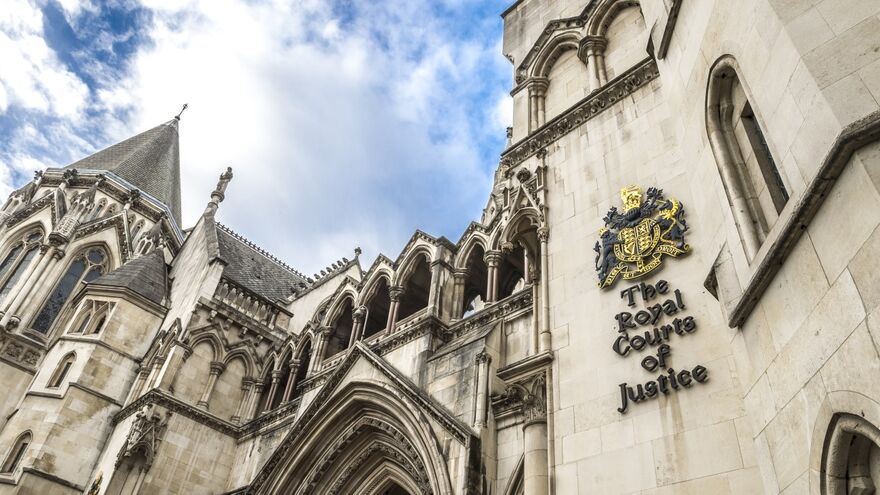On 29 November 2023 the Court of Appeal handed down a keenly awaited judgment in Churchill v. Merthyr Tydfil County Borough Council [2023] EWCA Civ 1416, which concerned the court’s ability to require parties to take part in alternative dispute resolution ‘ADR’.
Background
The Claimant, Mr Churchill purchased a house in 2015. The neighbouring land was owned by the Defendant, a council. The Claimant alleged that, from 2016, Japanese Knotweed had encroached from the Defendant’s land onto his, causing damage.
Mr Churchill complained to the council in 2020, and the council asked why he had not used their Corporate Complaints, Representations and Compliments Policy and threatened that, if Mr Churchill issued proceedings without doing so, they would apply for a stay. Mr Churchill issued his claim in July 2021, and the Council sought a stay (as threatened) on 15 February 2022.
First Instance
The Council’s application was heard on 21 May 2022 by Deputy District Judge Kempton Rees, who dismissed the application, finding that the Council were not entitled to a stay.
DDJ Kempton Rees held that he was bound to follow Dyson LJ’s statement in Halsey v. Milton Keynes General NHS Trust [2004] EWCA Civ 576 that ‘to oblige truly unwilling parties to refer their disputes to mediation would be to impose an unacceptable obstruction on their right of access to the court.’
The council were subsequently granted permission to appeal on 4 August 2022.
Appeal
On appeal, the matter came before three judges including the Lady Chief Justice of England and Wales, and the Master of the Rolls. To further highlight the importance of this case, 7 parties were granted permission to ‘intervene’ in the proceedings, including the Law Society, The Bar Council, and the Civil Mediation Council.
The Court of Appeal identified 4 issues to be decided on:
- Was the judge at first instance right to think that Halsey bound him to dismiss the application?
- If not, can the court lawfully stay proceedings for, or order, the parties to engage in ADR?
- If so, how should the court decide whether to stay proceedings?
- Should the judge have granted the Council’s application to stay proceedings to allow Mr Churchill to pursue a complaint under the Council’s internal procedure?
Following detailed consideration of the issues, the Court of Appeal held:
- The passage from Dyson LJ in Halsey, relied upon by DDJ Kempton Rees was not part of the essential reasoning of the case (it was obiter dictum), and as such, was not binding at first instance.
- The courts can lawfully stay proceedings for, or order, parties to engage in ADR provided that the order made did not impair the claimant’s right to proceed to a judicial hearing.
- The court would not lay down fixed principles as to how to determine whether proceedings should be stayed or to order parties to engage in ADR.
- On the facts in this specific case, a stay would no longer be granted (but parties ought to consider agreeing a temporary stay for ADR).
So why is this so important?
Since the decision in Halsey, there has been a real move towards ADR (and in particular, mediation) in civil proceedings. Churchill marks a significant development in furthering this trend.
In short, it confirms that the Courts have the power to order that claims are stayed whilst parties take part in Alternative Dispute Resolution processes, whether the parties want to or not.
The justification for this approach is that it encourages parties to reach settlements early before significant costs are incurred. However, another benefit is that early settlements ease the pressures on the Court system which are facing unprecedented backlogs and delays.
For litigants, and with ADR likely to become an inevitability rather than a choice, there is clearly now a pressure to engage in some form of ADR at the earliest appropriate opportunity. Similarly, if there are ADR procedures in place, such as complaints policies, these should be thoroughly considered and if appropriate these avenues should be exhausted, before proceedings are issued.
Finally, whilst this case is being heralded in some quarters as ‘mandatory mediation’, one should be careful not to misrepresent the judgment. The courts repeatedly refer to stays/orders for ‘a non-court-based dispute resolution process’. This includes mediation, but could also include things like expert determination, arbitration, complaints procedures, and referrals to an ombudsman.
If you are considering litigation, or wish to explore alternatives to it, the team at Howes Percival are well placed to assist, or contact Gary Pitt ([javascript protected email address]) who will be able to advise you.
The information on this site about legal matters is provided as a general guide only. Although we try to ensure that all of the information on this site is accurate and up to date, this cannot be guaranteed. The information on this site should not be relied upon or construed as constituting legal advice and Howes Percival LLP disclaims liability in relation to its use. You should seek appropriate legal advice before taking or refraining from taking any action.




